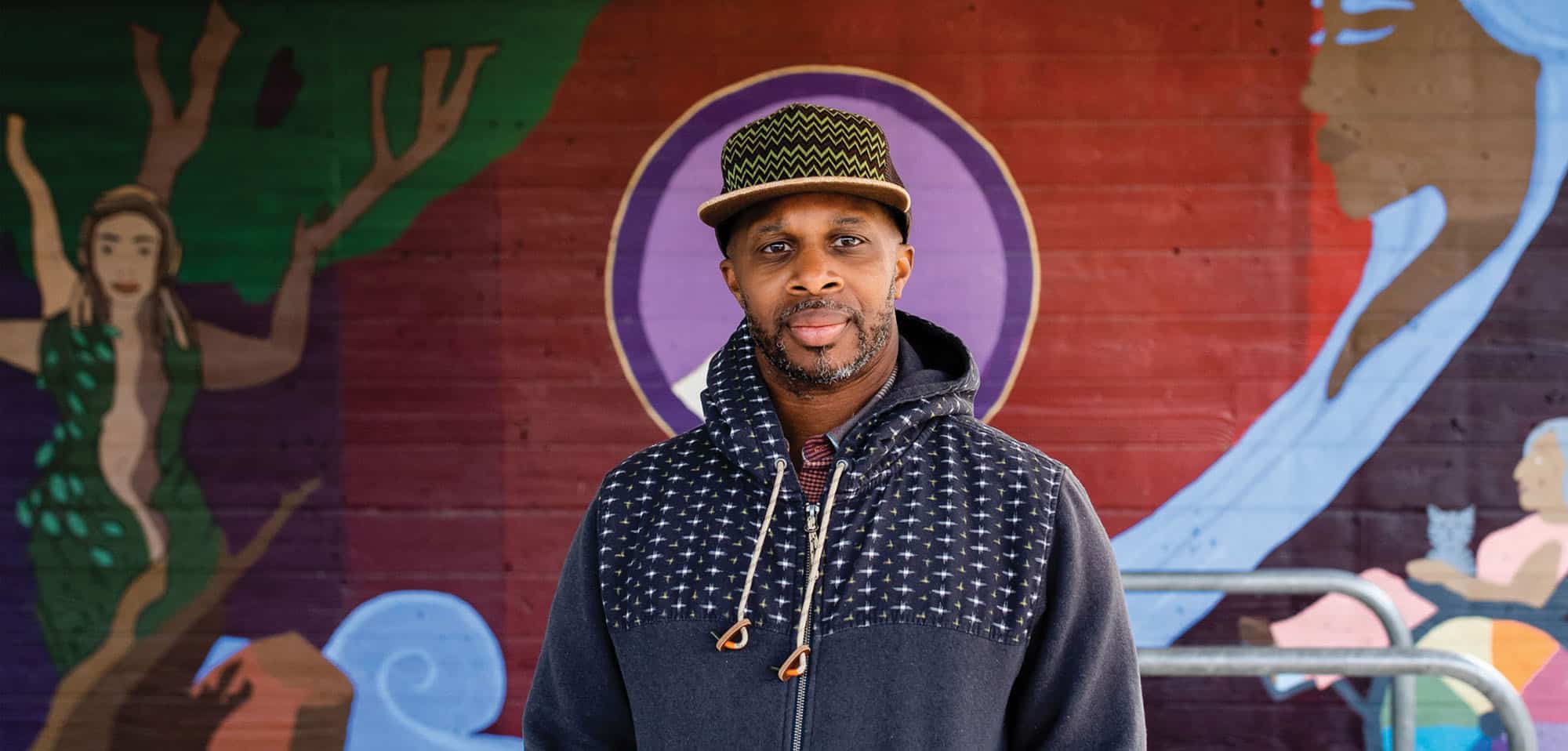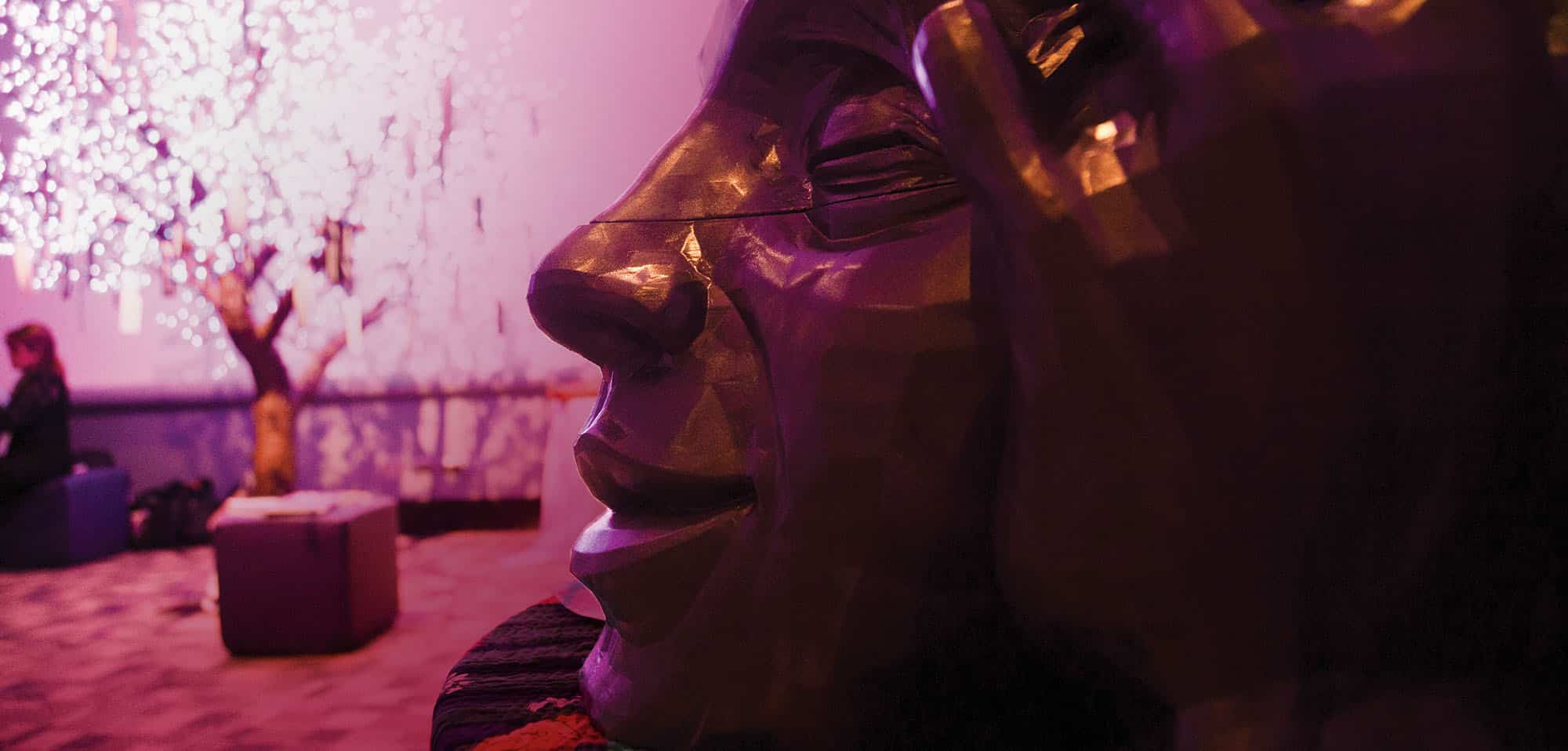 When I arrived at Naropa, I remember feeling concerned that I’d have to leave other parts of myself behind to devote myself to a graduate program,” says Ellie Douglass (MDiv, 2017). “I thought I had to compartmentalize myself, leaving the artist and the poet to the wayside. However, once I started moving through the program, I soon discovered that integrating these aspects of me was highly encouraged and therefore healing.”
When I arrived at Naropa, I remember feeling concerned that I’d have to leave other parts of myself behind to devote myself to a graduate program,” says Ellie Douglass (MDiv, 2017). “I thought I had to compartmentalize myself, leaving the artist and the poet to the wayside. However, once I started moving through the program, I soon discovered that integrating these aspects of me was highly encouraged and therefore healing.”
Douglass continues to embrace her whole self in her work as an interfaith hospice chaplain and spiritual care counselor, providing spiritual and emotional support to the dying and their grieving families. “My work is all about creating compassionate containers of loving presence and being with suffering, while discovering what can bring comfort and peace to the end of one’s life.”
She is dedicated to transforming how we view death and transition. “Being with people in sacred transition inspires me to want to help illumine the beauty, dignity, and wisdom of those at the end of their life.” In addition to writing a book about caring for people dying with dementia, she explores death and dying in her writing and visual art, creating comics, collages, and installations. “We are afraid to hear about death, look at it, experience it. Yet art is a compassionate vehicle to let us see new realities, through symbol, perception, and emotion. Through art we can change how we relate to our life and our death, which are intimately interconnected.”
One recent highlight was a collaborative art show, Interwoven: A Resting Place for Collective Grief. Conceived during the pandemic, the exhibition was on view at Boulder’s Arbor Institute in 2020. “Fellow artists and I created a community sanctuary— weaving a willow casket that became a contemplative vessel to hold grief notes from our community. This project drew upon and brought together the spiritual counselor, artist, and poet within me.”





